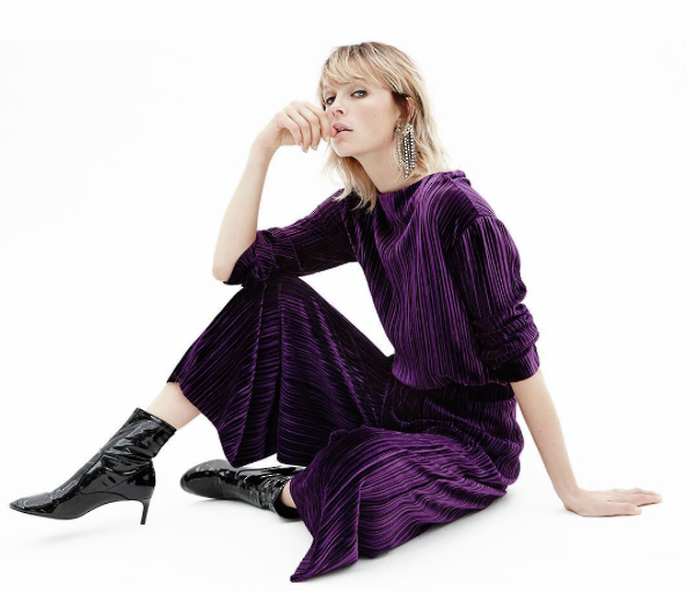Women are empowered on social media. Fashion needs more of them
Columnist Vivienne Hopley-Jones argues that there are some positive impacts to come of social media for women in fashion
The possibilities for political action through social media have been prominent in news headlines lately; women in Pakistan have been mobilising online platforms to show the political opportunities for accountability and change which social media offers. That social media can be a force for good is somewhat contrary to the normative stance on its more typical portrayal as destructive and damaging. Yet, is it not naive and crude to write off an entire platform based on its negative impacts?
“It is our culture and society which determines our online world”
It is, of course, important to acknowledge its possible dangers, and social media, like any other platform, has both positive and negative impacts, and often the positives are not emphasised enough. I am by no means ignoring or reducing the accounts which link social media with low self-esteem or inflamed mental illness, but instead I believe these issues are symptomatic of wider cultural phenomena, which vastly pre-date social media and which are merely being expressed and reinforced through it. If this is the case, these negative effects are not inherent to the platform; it is our culture and society which determines our online world. With social media being here to stay, we should think about how it can be mobilised for good. It can empower women, especially in the fashion world, and it is already doing so.
As depressing as the institutionalised sexism within the fashion industry is, with the top designers, casting agents, photographers, and owners of the conglomerates who own the big brands, being male, perhaps the role of social media can offer, if not a solution, then an alternative platform for female voices, ideas and creative control.
2010 saw the creation of both IntoTheGloss (from which beauty brand Glossier, an Instagram phenomenon, has since developed) and Man Repeller, both female-focused companies led by entrepreneurial and inspiring creatives, Emily Weiss and Leandra Medine, respectively. Both women founded their companies through personal online blogs: spaces which were made by women, for women. It seems ridiculous that such criteria makes them unique, yet in a market over-saturated with images of women defined through the male gaze, they offer a breath of fresh air and a real, relatable perspective on fashion.
Social media can give women opportunities, a voice, and a creative outlet. Despite the myriad of ways in which fashion models are sexualised and pigeonholed, social media has given previously voiceless models a platform of expression, and to some extent more power and creative freedom within the industry. Furthermore, the way in which outlets such as Instagram are being used to challenge the highly sexualised and idealised stereotypes of the female form is somewhat progressive. The platform has enabled the voices of models such as Iskra Lawrence and Barbie Ferreira, who promote body positivity, to be accessed directly by young people, while also enabling those the fashion industry does not represent to find inspiration and representation, from older women, who fall outside of the fashion industry’s youthful ideal of beauty, to women of colour and transgender women.

Standard sizing is unfathomable. The industry has to change
Everyday street-style also enables ‘normal’ women to share their style and lives on their own terms, not defined by the established, gendered eyes of a profit-driven industry. Accounts such as Intagram’s ‘alyssainthecity’, to name but one of many, run by a fashion editor at Refinery29, offer a more accessible street-style than that of high fashion.
Social media is an undeniable cog in the machine of modern life and criticising its faults is useful only in conjunction with celebrating its strengths. It allows us to think about how the opportunities for online sharing and communication can enhance the fashion industry both directly through the promotion and expansion of female creatives and influencers, and also indirectly through the lives of individual men and women who are influenced by the creative world and its progressive ideas, which are displayed through it
 Music / The pipes are calling: the life of a Cambridge Organ Scholar25 April 2025
Music / The pipes are calling: the life of a Cambridge Organ Scholar25 April 2025 News / Candidates clash over Chancellorship25 April 2025
News / Candidates clash over Chancellorship25 April 2025 Interviews / Dr Ally Louks on going viral for all the wrong reasons25 April 2025
Interviews / Dr Ally Louks on going viral for all the wrong reasons25 April 2025 Comment / Cambridge builds up the housing crisis25 April 2025
Comment / Cambridge builds up the housing crisis25 April 2025 Arts / Plays and playing truant: Stephen Fry’s Cambridge25 April 2025
Arts / Plays and playing truant: Stephen Fry’s Cambridge25 April 2025






